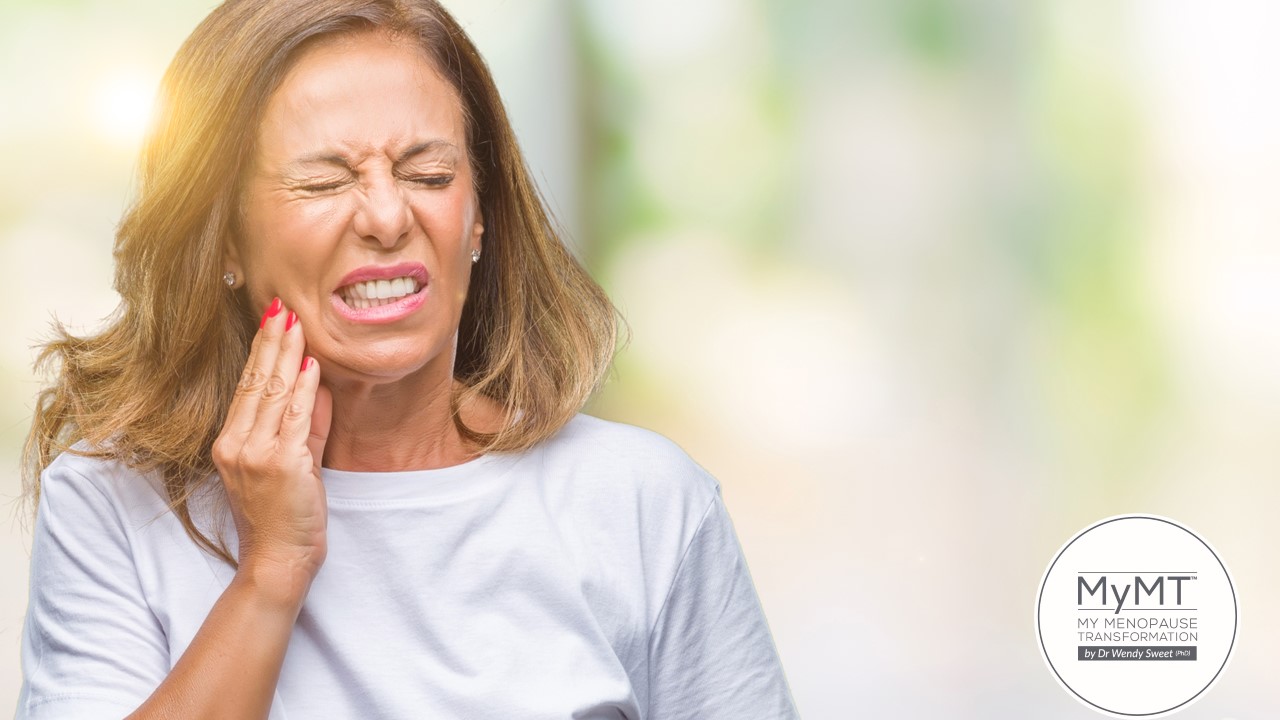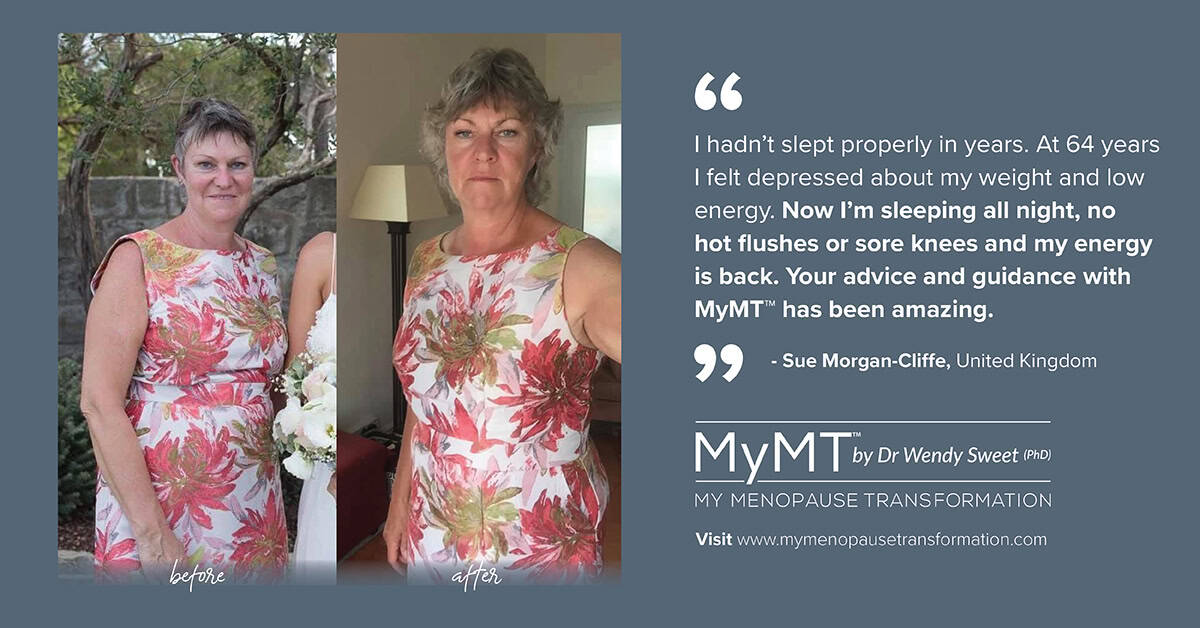We’ve been discussing them in my private coaching group over the past week – symptoms that we didn’t associate with our menopause and our ageing.
From burning tongue syndrome to skin changes to gastro-oesophageal reflux to tingling feelings in the arms and legs … many of these symptoms seem to arrive in midlife or post-menopause and we box-on, either ignoring them or visiting various medical specialists who find nothing wrong!
With so many women in my coaching community having their ‘aha moment’ when I mentioned some of the symptoms this week, I thought I would focus on two of these in this article for you – Burning Tongue Syndrome and Skin Changes. If you know someone with either of these symptoms, then please share away!
It took a long time after I went through menopause to begin to explore the origins of the feelings in my mouth – a tongue that felt like it was painful and ‘burning’ at the tip of it and almost a numb sensation in the oral mucosa, a bit like when you drink a hot coffee or tea and you scald your tongue.
I never gave menopause nor low Vitamin D or zinc a thought, especially when I moved towards more of a vegetarian diet.
Then one day, Rasika emailed me from London, saying that her tongue had always felt like it had been burning and her Doctor had no idea why. I began to look into it a bit more, because I had met her at one of my UK seminars and we had been talking about the risk of Vitamin D levels in women with darker skin, as she had.
Burning Tongue Syndrome differs from Xerostomia. Xerostomia is Dry Mouth Syndrome which many woman suffer from as well.
We often don’t think about how our oral cavity changes during menopause, but with changes to glands, our salivary glands shrink in size and salivary flow may be reduced up to 40-50% in menopausal women.
This is why I often tell women who are feeling dizzy or have dry mouth to cut up some carrots and apples and get chewing! This stimulates saliva!
But back to our tongue. If you have experienced the feelings of a burning tongue, then you aren’t alone. It’s one of the most frustrating symptoms that we don’t associate with our menopause changes.
However, when you think about the fact that menopause is the start of our ageing, and our muscles are changing in size and tone, then it makes sense that the tongue, which is mainly muscle, is changing too. It helps to bring perspective to the fact that our tongue and oral cavity are also affected by our hormonal changes in midlife.
Your tongue is mostly made of muscles and is covered by mucosa (a moist, pink lining that covers certain organs and body cavities). It’s also covered with different types of papillae (bumps) and taste buds which are part of your immune system.
When you think about your tongue and the mucosa as being integral in your immune health, then it makes sense that it also responds to certain nutrients.
These nutrients include Vitamin D, Zinc and the B-vitamins, particularly Vitamin B6, B1 and B12.
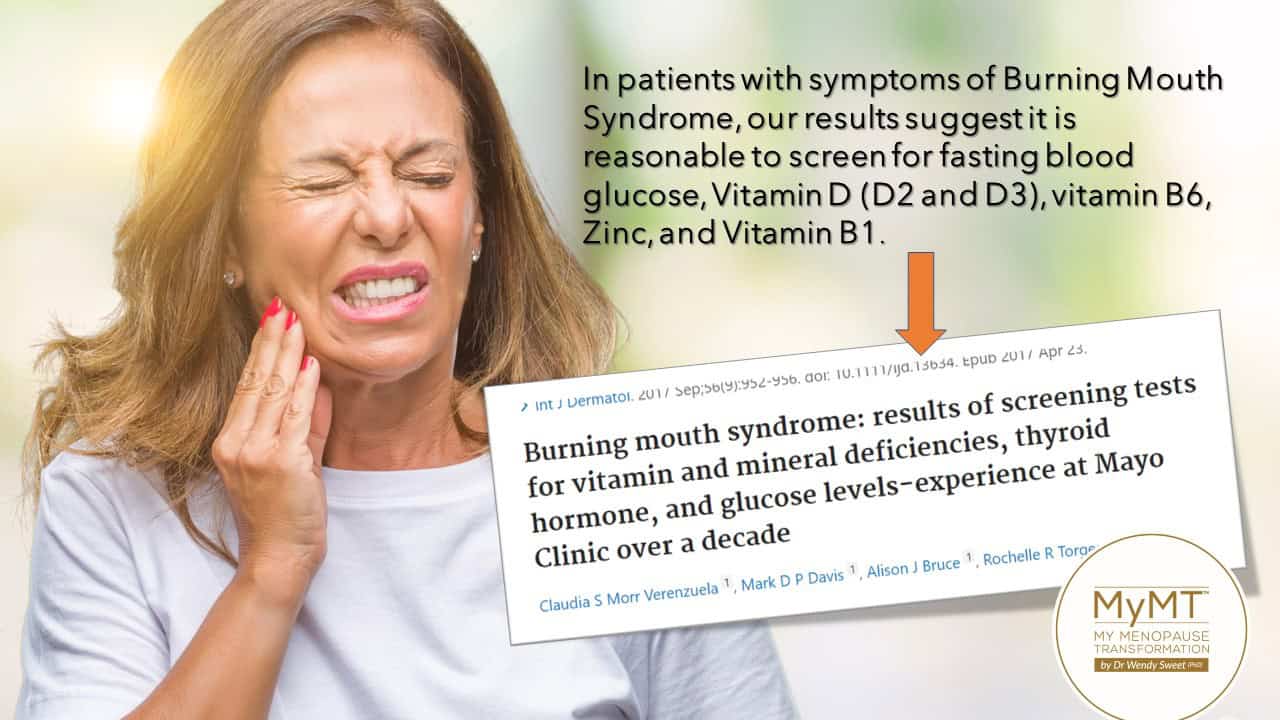
Whilst I always recommend getting any symptom checked out, if your Doctor doesn’t know about Burning Tongue Syndrome, then please talk to your Dentist. I bet he or she may know about it! And when you look at the Vitamins that are necessary for the oral mucosa and tongue, then you can also include these foods in your diet too:
- Vitamin D rich foods (and/or a supplement)
- Brown Rice, Whole Grains and Beans for Thiamin (Vitamin B1) – only small amounts are stored in the liver, so a daily intake of thiamin-rich foods is needed.
- Vitamin B6 and Vitamin B12 is found in salmon, fish, meat, eggs, chickpeas, leafy greens and bananas.
- Zinc is found in oysters, seafood, eggs and oats and other breakfast cereals. If you are vegan and don’t eat eggs, then you may wish to talk to a Pharmacist about a supplement too.
The other thing to consider is whether you are having enough Vitamin C.
When you link up the fact that our oral cavity and tongue is an integral part of our immune system and Vitamin C is evidenced in pain management, then please also get juicing and increase your intake of Vitamin C. We need more than we think during menopause and burning mouth is a known symptom in scurvy so keep this in mind as you tackle your burning tongue!
And with Vitamin C on our minds, then let’s also talk about the changing sensitivity of your ageing skin!
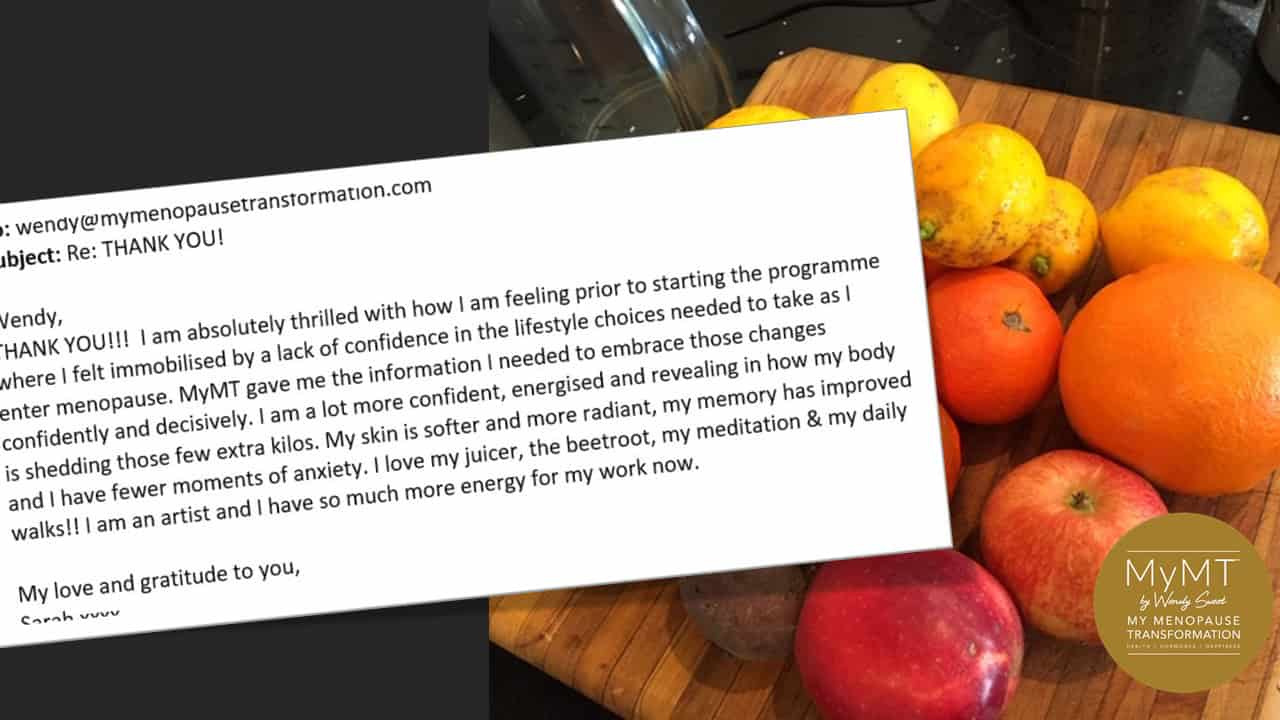
For some of you in your early 50’s , your skin gets incredibly dry. For others of you, it gets ‘crinkly’ or ‘crepey’. Some of you are driven crazy because your skin starts to itch. Some of you even develop eczema or psoriasis. Many of you notice the dark spots arriving more rapidly too.
As we transition menopause, our hot flushes, poor sleep, anxiety and mood swings are often the only symptoms that we focus on, so we go on HRT and various supplements, but then other symptoms arrive which we don’t associate with our menopause transition.
Very few of us realise that as oestrogen and progesterone levels decline as a normal part of our ageing, our skin is changing too. With the main changes to our skin occurring in puberty, it’s little wonder that at the other end of the reproductive life-stage, our skin is changing again.
And according to the research that came out of the University of Otago in New Zealand, we should all have a bit more focus, not only on Vitamin D, but on the powerful influence of Vitamin C. [Pullar, Carr & Vissers, 2017].
Not only do we need Vitamin C inside us through beautiful fruits and vegetables, but according to this research, Vitamin C applied on the skin through fermented papaya, can also help your skin to maintain its integrity and health as you age.
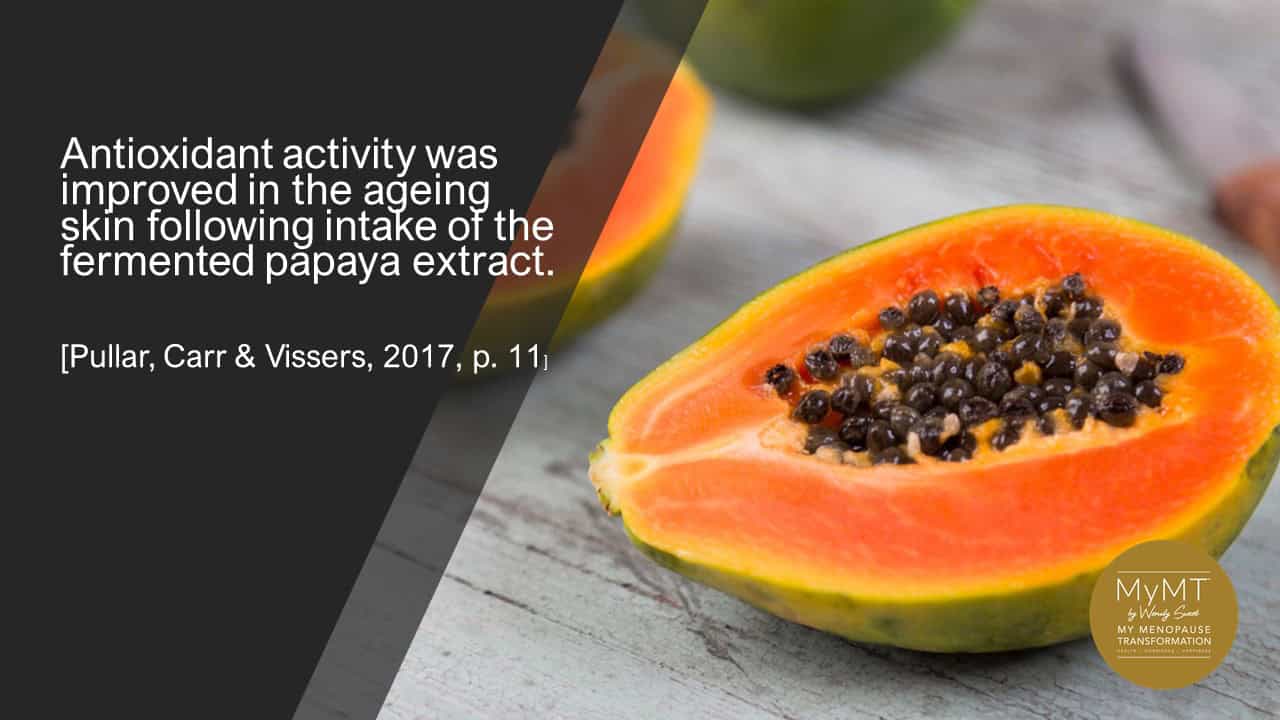
Your skin is the largest organ in the body – covering approximately 2 square metres, weighing approximately 3.6kg, it pays to look after it as we get older. Afterall, it needs to do it’s job of protecting your immune health for quite a few years ahead.
The primary function of your skin is to act as a barrier against insults from the environment. This is why it is an integral part of your immune system.
For women transitioning menopause, it is well known that this stage of life is a vulnerable time for immune health. My view is that we grossly underestimate its function and role as we move into the next stage of life so please be careful what you put on it! I’ll tell you why…
Our skin has two layers:
- the epidermal outer layer is full of keratinocytes. This outermost layer is your waterproof raincoat barrier. It contains lots of structural proteins called keratin cells. These cells are important, because they also ‘talk’ to your immune system and they do this with the help of oestrogen.
- the inner dermal layer gives our skin strength and elasticity. This layer also gives nutritional support to the outer layer – the epidermis. This nutritional support needs high concentrations of Vitamin C to help preserve and maintain collagen production.
If your skin has been itchy and irritating you or it has turned incredibly dry (have your heels got cracks in them like the Grand Canyon?), then menopause is the time of your life when you need to consider the nutrients in your diet.
Dry skin is a common condition typically experienced by most people at some stage in their lives but none more so than in menopause. The prevalence of dry skin increases with age and menopause is the biological gateway to our ageing.
So, whilst dry skin was originally believed to be due to decreased water content or sebum production in the skin as we get older, it’s now considered likely to be due to alterations in the keratinisation process and fat content of the layer under the skin.
It’s why “beauty from the inside”, via nutrition, may be more effective than topical application. Look at Debb, who lives up in the Cook Islands and works as an academic – she shared this photo after picking all the tropical fruit from her garden.
Her joint health and energy levels have turned around since understanding the relevance of the rich nutrients in the tropical fruits that she is lucky enough to have on her doorstep.
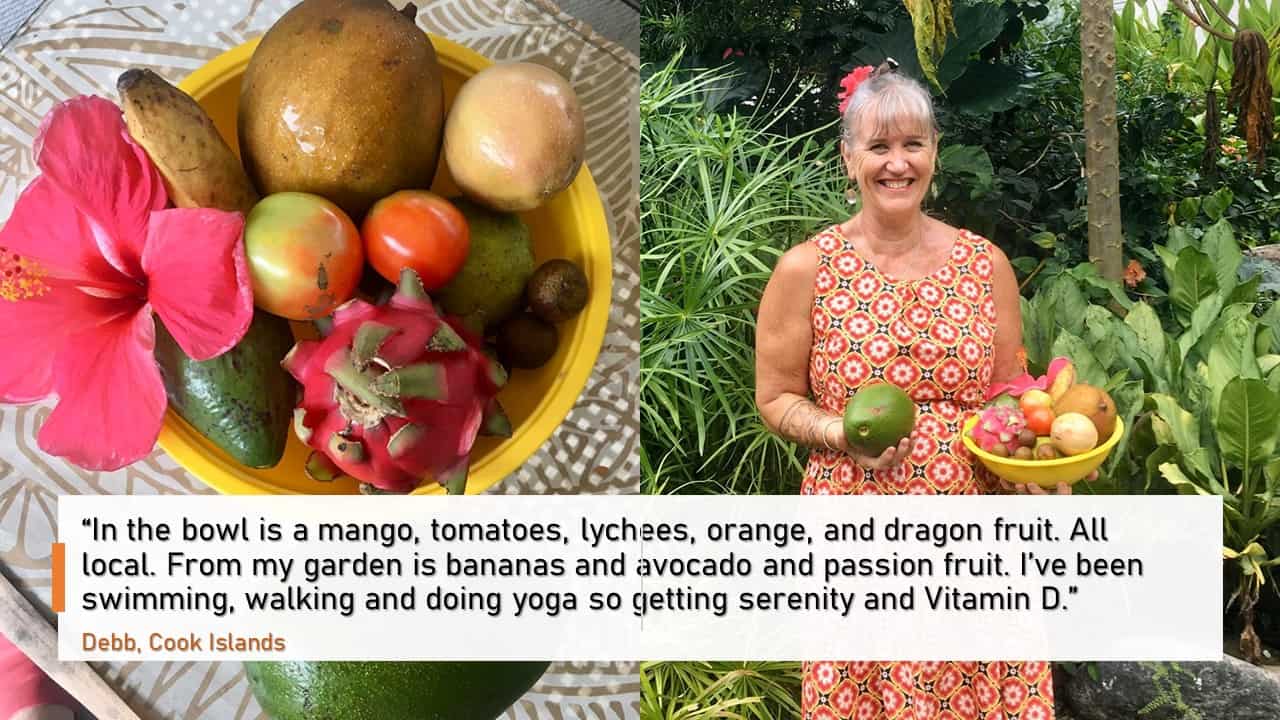
Normal skin contains high concentrations of vitamin C. I wish I’d known this in my mid-late 40’s when I was being influenced by weight loss diets that told me to get off fruit and I was wondering why, when I entered peri-menopause my skin felt itchy – not one health professional I went to mentioned the need for additional Vitamin C with the loss of oestrogen to my skin.
As well, being a regular exerciser, my busy life, lack of sleep and a dietary approach of high fat and protein that was being promoted in the fitness industry at the time, led me down the path to worsening immune health, despite thinking that I was doing all the correct things.
I didn’t know that it was my skin that also needed my focus to help my immune system. And for those of you in the Northern Hemisphere heading into your summer months, I want you to know that Vitamin C is also needed to assist antioxidant protection against UV-induced photo-damage to your skin as well.
For millions of women entering menopause, there is no better time to have a re-think about how we look after ourselves. As I often mention in these articles, menopause is the opposite of puberty.
At one end, which is where we all were a few decades ago, we were entering higher oestrogen levels as we began our transition into our reproductive years and at the other end, which is where we are at now, oestrogen levels are naturally declining. This leads to numerous changes throughout our body, not just in our ovaries.
Learning what to do to look after ourselves and manage our menopause symptoms and or any menopause weight gain is the purpose of the MyMT™ programmes. I hope you can join me sometime.
Dr Wendy Sweet (PhD)/ MyMT™ Founder & Member: Australasian Society of Lifestyle Medicine.
References:
Ciesielska A, Kusiak A, Ossowska A, Grzybowska ME. Changes in the Oral Cavity in Menopausal Women-A Narrative Review. Int J Environ Res Public Health. 2021 Dec 27;19(1):253. doi: 10.3390/ijerph19010253.
Geddes, L. (2019). Chasing the Sun. [Wellcome Collection], Profile Books:London, UK.
Lymon, M. (2019). The Remarkable Life of the Skin. Bantam Press, Transworld Publishers: London, UK.
Pullar, J., Carr, A., Vissers, M. (2017). The Roles of Vitamin C in Skin Health. Nutrients, 9, 866, 1-27.
Thornton, J. (2013). Estrogens and aging skin. Dermato-Endocrinology (5)2, 264–270.
